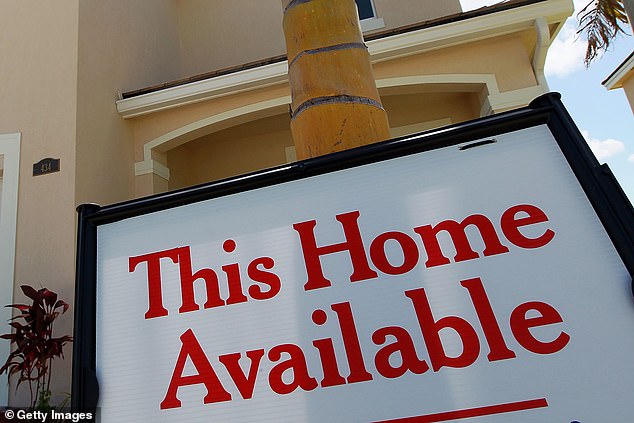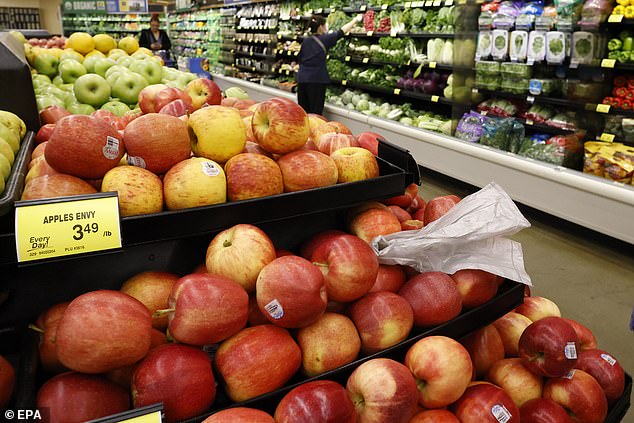Kamala Harris will give $6,000 to every newborn child and $25,000 to first-time home buyers as part of economic policy
Kamala Harris will present her economic agenda if she wins the November election, with a wide range of priorities ranging from from affordable housing to family planning and tackling prescription drug costs.
The Democratic presidential candidate is calling for $6,000 for newborns, expanded child benefits, a $25,000 down payment for first-time home buyers, medical debt forgiveness and other measures for her first 100 days in office.
It marks the first time the vice president has laid out her own priorities and distinguished herself from the Biden administration since President Biden withdrew from the presidential race last month.
The Democratic presidential candidate will lay out her proposals in her first policy address, which focuses on the economy and lowering costs for American families, during a visit to the crucial state of North Carolina on Friday.
Kamala Harris will deliver her first policy speech focused on the economy during a visit to Raleigh, N.C. on Friday. Ahead of the speech, Harris’ campaign unveiled a series of economic proposals that the vice president would focus on in her first 100 days in office if elected
While some of the proposals aren’t yet as detailed and would face an uphill battle in Congress, here’s what’s on Harris’ economic wish list so far:
Tax credits for children
The vice president is calling for a new $6,000 child tax credit for families with an infant, in addition to expanding the current child tax credit.
The newborn tax credits are designed to help middle- and low-income families with the costs of everything from cribs to parents taking time off work to care for the baby during the first year of their baby’s life.
Harris also calls for the return of the expanded Child Tax Credit, which was passed in the 2021 American Rescue Plan but expired the following year. It provided up to $3,600 per child to qualifying families, depending on their income and the ages of the children.

Harris is calling for a $6,000 per child tax credit for newborns and an expansion of the current child tax deduction to American Rescue Plan levels for qualifying families.
The vice president also wants to expand the Earned Income Tax Credit, a longstanding priority for Democrats, by up to $1,500 for workers in low-wage jobs.
President Biden pledged before dropping out of the presidential race not to raise taxes on households earning less than $400,000 a year. It’s a pledge the vice president plans to keep as the nominee, but it would mean striking a deal with Republicans in Congress to address some provisions of Trump’s tax law that are set to expire at the end of next year.
Affordability of housing and home loans
As Americans struggle with rising home prices and can’t afford their first home, Harris is calling for up to $25,000 in down payment assistance for first-time home buyers.
This comes after the Biden administration first called for $25,000 down payment assistance for 400,000 first-generation home buyers and a $10,000 tax credit for first-time home buyers.
The Harris plan would extend assistance to all eligible first-time homebuyers. Such buyers include families who have paid their rent on time for two years, with more support for first-generation homeowners. According to her campaign, it would enable more than 4 million first-time homebuyers to get an average of $25,000 in assistance for their first home over four years.

Kamala Harris wants to provide up to $25,000 in down payment assistance to first-home buyers and calls for the construction of three million new homes in four years
The vice president is also calling for three million new homes to be built in her first four years in office if elected to address the housing shortage and affordability crisis. It’s an increase from the two million new homes called for under the Biden administration.
She also wants to introduce a first-ever tax break for homebuilders who build starter homes and sell them to first-time buyers. She also wants to expand existing incentives for companies that build rental homes and create a $40 billion innovation fund to help local governments find local housing solutions.
The campaign said the vice president would also pressure Congress to pass legislation to crack down on big corporations that drive up rents and Wall Street investors who buy up homes en masse.
Prescription drug cost ceiling
Harris is calling for a $2,000 cap on insulin and prescription drug co-pays for everyone. It would expand on measures taken under the Biden administration to cap such costs for seniors starting next year.
The vice president also wants to accelerate Medicare negotiations on prescription drug costs, building on measures already taken in the Biden administration. She’s calling for greater transparency in health care and vowing to work with states to cancel medical debt if elected.
Tackling rising food costs
Harris wants the first-ever federal ban on corporate profiteering, which her campaign says would help address the rising cost of groceries. inflation has persisted for much of the past four years.
While it is not entirely clear how the proposal would be enforced, the campaign said the plan would set “clear rules” so companies cannot “unfairly exploit consumers” and The Federal Trade Commission and state attorneys general have the authority to investigate the food industry and impose “severe penalties” on companies that violate the rules.

The Democratic presidential candidate is calling for the first-ever federal ban on profiteering to tackle high food prices, but economists warn it will not bring food costs back to pre-pandemic levels.
The proposals would also end mergers between large food companies, which the campaign argues allow companies to raise food prices and undermine competition.
Such a step has been taken by sSome progressive groups accuse big corporations of taking advantage of the pandemic and supply chain challenges to drive up prices,Other economists are hesitant to attribute the price increases to corporate greed, arguing that banning excessive pricing will not reduce food costs.
